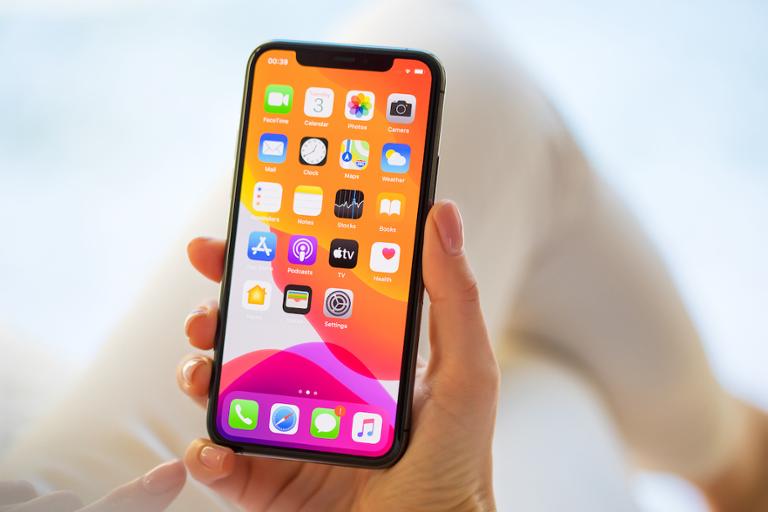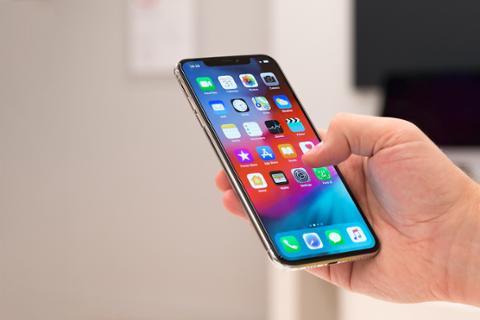Submitting a resume is often a nerve-wracking experience. You can spend lots of time polishing every line, only to never get a response from a recruiter or hiring manager. With that in mind, we spoke with a few hiring managers to find out what really matters when it comes to iOS developer resumes. How can you actually make yours stand out and land more job interviews?
Spoiler alert: There is no secret.
It all comes down to mastering the resume basics and putting your skills in the best possible light. Here’s what our experts told us.
Formatting Matters – and So Does Grammar
Sue Fehser, Lead Talent Partner, Engineering & Product at AKASA, tells Dice: “Formatting does not matter as much when there’s a relatively small pile of resumes. The substance of the candidate’s experience matters most, and you can’t discard a qualified candidate just because their resume is harder to read or has formatting issues. Some formatting mistakes can even be beyond the candidate’s control (e.g., a bug in the Applicant Tracking System or the Job Site Portal messed up a well-formatted resume). Also, high-demand candidates might not have taken the time to refine their resumes simply because they’ve relied on their networks to get a job and didn’t need to have a fully polished resume at hand.”
But that changes for open jobs receiving an enormous number of resumes—which is many jobs in tech. “No recruiter or hiring manager will stop and waste time trying to make sense of a resume that is confusing, too wordy, or too bare bones when they know they have dozens more to comb through,” Fehser added. “Candidates who know how to make themselves stand out with a well-organized resume get noticed quickly.”
Michelle Ashby, Manager, Talent Acquisition at Contrast Security, adds: “The design you choose for your resume is just as important as the included content. A successful resume is a combination of information presented in a way that is easy to read. A recruiter spends about 20 seconds looking at resumes initially; therefore, making an immediate impact is beneficial.”
CJ Wesstrom, Development Lead at Konstruct Digital, tells Dice that, while formatting and grammar are good for the person reviewing your resume, it also shows what the employer can expect. “Formatting and grammar absolutely matter to me when I go through resumes and cover letters,” Wesstrom says. “A reason for this is that our developers are likely to interact directly with clients and we need to ensure that they are comfortable and able to handle professional communication. We also expect our developers to contribute to technical documentation. A well-formatted resume and cover letter, while not directly correlating to all types of writing, can indicate that the applicant is aware that how something is communicated matters.”
It's also possible to “over-format” your resume. If you try to overstuff your resume with certain keywords, you risk rejection by the ATS (applicant tracking system) software that many companies use. Also, if you get clever with images or file types, it can render your resume unreadable by machine. Stick with approved file types (PDFs are never a bad idea) and keep formatting to a minimum. If it can’t be done with markdown, chances are you shouldn’t use it.
Hack the System (with Keywords)
Let’s dig a bit more into ATS, because as an iOS developer, your future employment could very well hinge on how these platforms scan your resume. Ashby adds: “When you apply for a developer position at a company, the first person looking at your resume is, well, not a person. Today many companies utilize an ATS to filter out most applicants for a role based on keyword matching. Add optimized keywords to your resume to trigger the ATS to identify and match desired skills.”
What keywords should you use? Always look at the terms in the original job posting—for example, if it uses “Swift” and “Objective-C,” make sure those end up in your resume (and that you’ve mastered them, of course). Anna Richardson, VP of HR at Aiven, says using keywords from the job post help ATS “scan the resume easier and collect all of the important data.”
Above all else, make sure you actually know the skills you’re listing—or face the consequences if you make it to the technical interview portion of the process. “If you include the appropriate keywords in the job description, a recruiter will review your resume and present your profile to the technical hiring manager,” Ashby continues. “Remember, you need to be able to discuss these skills in the interview, so only list the ones you have experience with. It is an excellent idea to organize your skills by your proficiency level with categorizations like [advanced], familiar, expert, or working knowledge.”
Resume reviewers also say you should personalize your resume to the job posting. Does the prospective employer want an iOS developer who can manage an iOS project from conception through implementation? Focus the experience section of your resume on how you’ve guided projects to successful completion.
How to List Your Skills and Accomplishments On an iOS Resume
One thing our panel could not agree on was how long your resume should be. Most admit a succinct resume is better, but there was no consensus on best practices. Especially if you’ve racked up some years as an iOS developer, chances are good you won’t be able to fit your work history, skills, and accomplishments on a single page. Two to three pages seems like the absolute maximum, though—longer than that, and you risk losing your audience.
Your resume should have a separate skills section, and you should use bullet points to highlight your skills and accomplishments. Bullet points are ATS-friendly, easy to read through quickly, and help hiring managers quickly see that you’re skilled and worth an interview.
“Select specific accomplishments from your background that make you stand out,” Ashby says. “Remember to do your research on the company's overall trajectory and mission statement to include applicable bullet points, paying attention to quantifiable metrics that can exemplify that experience. Then, be prepared to discuss those accomplishments during the interview process.”
Wesstrom tells Dice: “I prefer to see accomplishments tied to each previous job. Keeping this as short as possible, likely in bullet points, makes it easier to parse. There's something about not having to tell a full backstory to highlight why your efforts were an accomplishment. Context matters, but accomplishments in this case are likely about results as opposed to overcoming organizational obstacles (which is definitely something that requires more context to understand).”
It's also important to show how your skills and experience led to quantifiable results at your previous employers—make sure to mention how your work contributed directly to business goals, whether launching an app that boosted company revenue or updating old code to get a bit more life out of an existing iOS product.
“Having a specific section dedicated to skills makes it a lot easier to point out qualified developers/engineers and the software they have the most experience with,” Richardson adds. “If it’s lumped into a professional or education section, then it’s much more tedious to decide what skills this applicant may have. My personal preference for these would be a bullet point list and ensuring that you list relevant skills to the job posting.”
Sign Up Today
A Membership has its benefits. Sign up for a free Dice profile, add your resume, discover great career insights and set your tech career in motion. Register now



